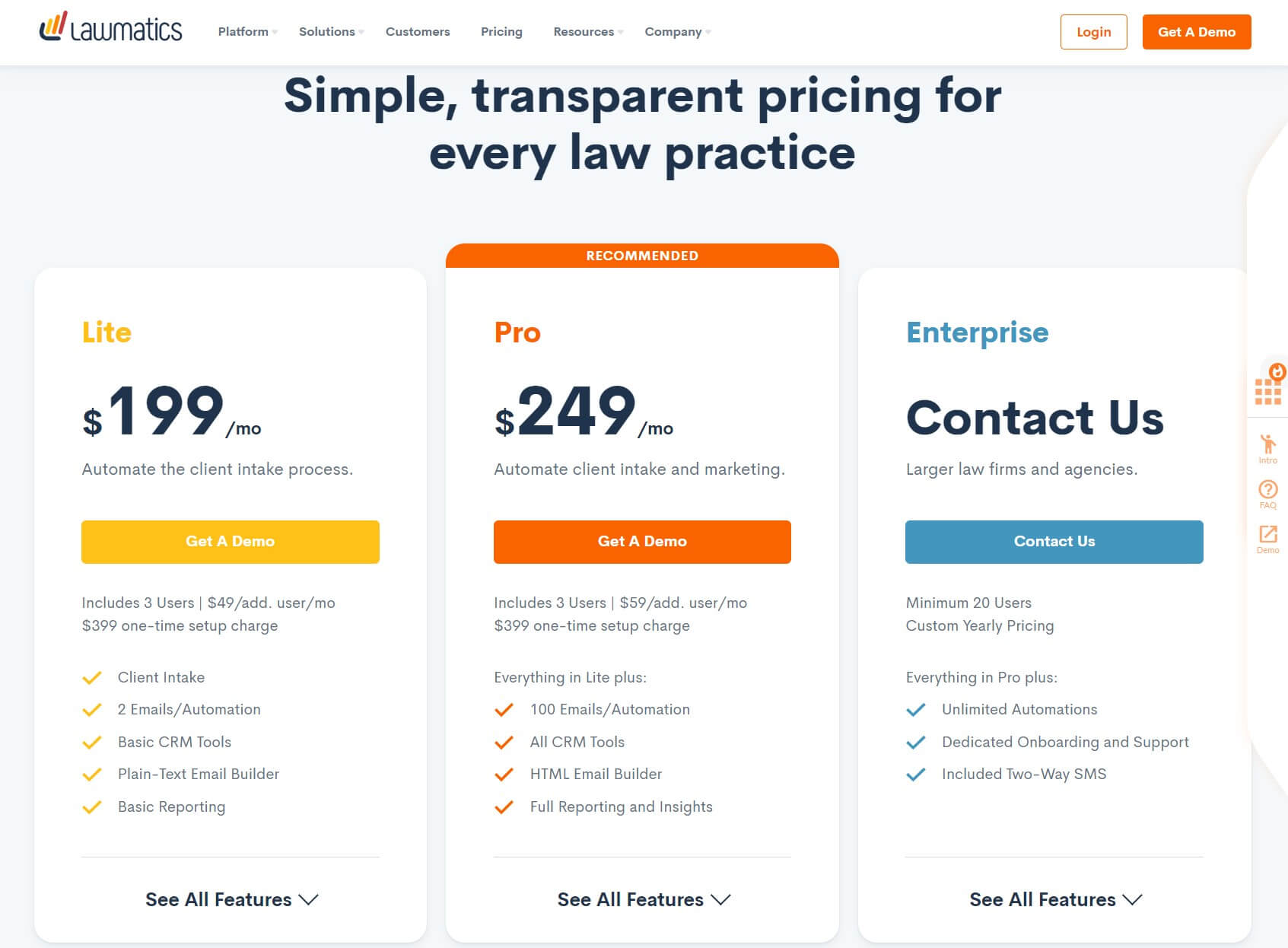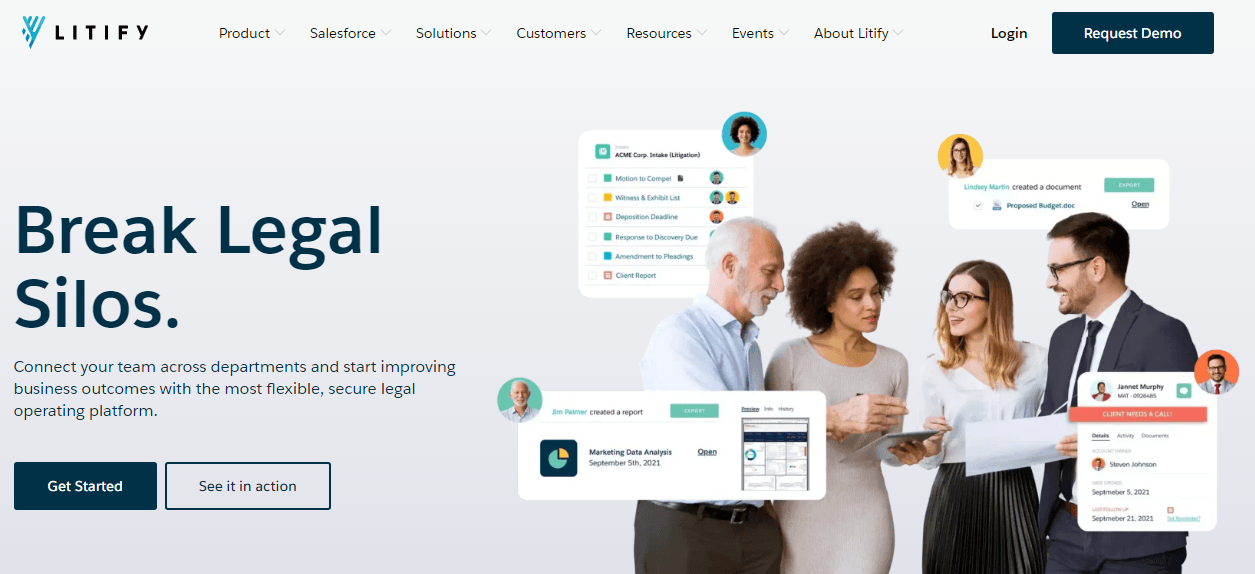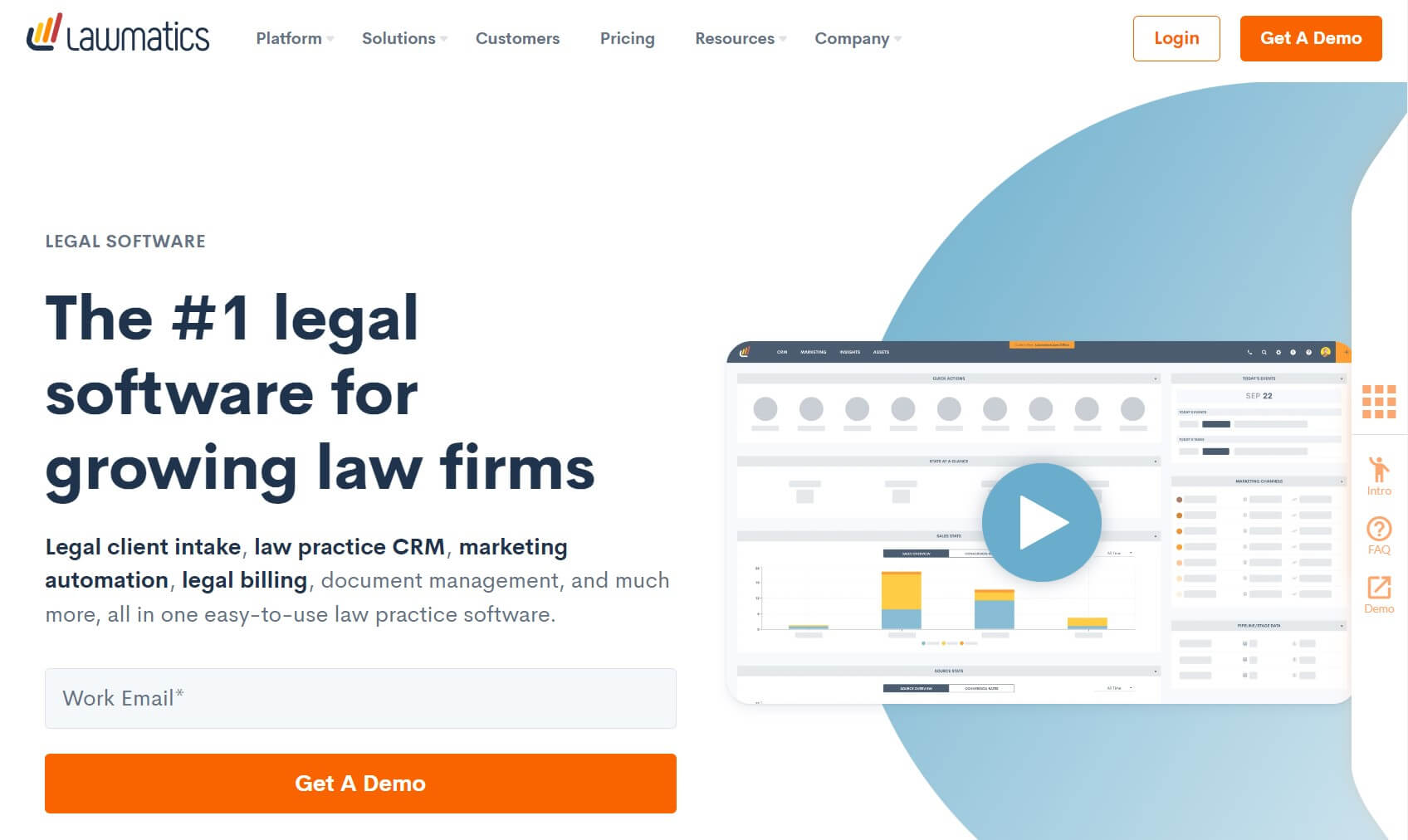Best CRM for law firms is a powerful tool that can revolutionize the way you manage your practice. With the right CRM, you can streamline workflows, automate tasks, and improve communication, all while enhancing client relationships and increasing productivity.
In this guide, we’ll explore the key features and benefits of using a CRM for law firms. We’ll also provide a step-by-step guide for successful implementation and adoption.
Law Firm CRM Market Overview

The market for CRM solutions specifically tailored to law firms is experiencing significant growth, driven by the increasing need for law firms to manage client relationships, streamline operations, and improve efficiency. According to a recent report by Grand View Research, the global legal CRM market size was valued at USD 1.4 billion in 2022 and is projected to grow at a compound annual growth rate (CAGR) of 10.3% from 2023 to 2030.
The growing adoption of cloud-based CRM solutions is a key trend in the law firm CRM market. Cloud-based CRMs offer several advantages over on-premise solutions, including increased flexibility, scalability, and cost-effectiveness. Additionally, the integration of artificial intelligence (AI) and machine learning (ML) into CRM solutions is gaining traction, as law firms seek to automate tasks and gain insights from their data.
Major Players and Market Share
The law firm CRM market is dominated by a few major players, including:
- Salesforce
- Microsoft Dynamics 365
- Lexicata
- Clio
- MyCase
Salesforce and Microsoft Dynamics 365 are the leading players in the overall CRM market, and they also have a strong presence in the law firm CRM market. Lexicata, Clio, and MyCase are specialized law firm CRM providers that offer solutions tailored to the specific needs of law firms.
Features and Capabilities of Best CRMs for Law Firms

Law firms need a CRM that is tailored to their specific needs. The best CRMs for law firms offer a range of features and capabilities that can help firms manage their cases, track their time, bill their clients, and manage their documents.
When selecting a CRM, law firms should consider the following essential features and capabilities:
Case Management
- Track the progress of cases from intake to resolution.
- Manage case-related documents, notes, and communications.
- Assign cases to attorneys and paralegals.
- Set deadlines and track case progress.
Time Tracking
- Track the time spent on cases and other tasks.
- Generate time reports for billing and analysis.
- Set billable and non-billable rates.
- Track time spent on specific tasks, such as research, writing, and client meetings.
Billing
- Create and send invoices to clients.
- Track payments and receipts.
- Generate billing reports.
- Manage client accounts.
Document Management
- Store and manage case-related documents.
- Create and edit documents.
- Share documents with clients and other attorneys.
- Track document revisions.
Mobile Access
Lawyers and staff need to be able to access their CRM from anywhere, at any time. The best CRMs for law firms offer mobile apps that allow users to access their data and manage their cases on the go.
Customization Options
Law firms should be able to customize their CRM to fit their specific needs. The best CRMs for law firms offer a range of customization options, such as custom fields, custom reports, and custom workflows.
Integrations with Other Software
Law firms often use a variety of other software programs, such as accounting software, document management software, and email marketing software. The best CRMs for law firms offer integrations with other software programs, which can help firms streamline their workflow and improve efficiency.
Benefits of Using a CRM for Law Firms
Implementing a CRM system in law firms offers a multitude of advantages that streamline operations, enhance productivity, and foster stronger client relationships. By leveraging a CRM, law firms can experience:
Improved Efficiency, Best crm for law firms
CRMs automate repetitive tasks such as scheduling appointments, sending emails, and generating documents. This frees up lawyers’ time, allowing them to focus on more strategic and value-added activities that drive revenue and client satisfaction.
Increased Productivity
CRMs provide a centralized platform for managing client data, case files, and communication. This eliminates the need for multiple systems and reduces the risk of errors caused by manual data entry. Streamlined workflows and improved organization enhance productivity, enabling law firms to handle more cases and increase profitability.
Enhanced Client Relationships
CRMs empower law firms to track client interactions, preferences, and case history. This enables lawyers to provide personalized service, anticipate client needs, and build stronger relationships. By fostering positive client experiences, CRMs contribute to client retention and referrals, driving long-term growth for law firms.
Considerations for Choosing the Best CRM: Best Crm For Law Firms
When selecting a CRM, law firms must consider various factors to ensure it aligns with their specific requirements and goals. Conducting a thorough needs assessment is crucial to determine the firm’s unique needs and identify the most suitable CRM solution.
Evaluating multiple vendors and comparing their offerings helps firms make informed decisions.
Firm Size
The size of the law firm plays a significant role in CRM selection. Smaller firms may prioritize cost-effectiveness and ease of use, while larger firms might require more robust systems with advanced features and scalability.
Budget
Budget constraints can influence the choice of CRM. Firms should determine the cost of implementation, maintenance, and ongoing support and ensure it aligns with their financial capabilities.
Specific Needs
Law firms have diverse needs based on their practice areas and client base. Consider the specific functionalities required, such as case management, time tracking, billing, document management, and client relationship management.
Integration with Other Systems
The ability to integrate with existing systems, such as accounting software or document management systems, is crucial for streamlining workflows and enhancing efficiency.
Security and Compliance
Law firms handle sensitive client data, so the CRM must comply with industry regulations and ensure data security. Firms should evaluate the vendor’s security measures and data protection policies.
Vendor Support
Reliable vendor support is essential for ongoing maintenance, troubleshooting, and training. Firms should assess the vendor’s reputation for responsiveness, technical expertise, and customer satisfaction.
Implementation and Adoption of CRM

Implementing and adopting a CRM in a law firm requires careful planning and execution. Best practices include engaging stakeholders, customizing the CRM to fit the firm’s specific needs, and providing ongoing training and support.
A step-by-step guide for successful implementation includes:
- Define goals and objectives:Determine the specific reasons for implementing a CRM and what outcomes the firm hopes to achieve.
- Select the right CRM:Research and evaluate different CRM solutions to find one that aligns with the firm’s size, budget, and needs.
- Engage stakeholders:Involve key stakeholders from different departments in the implementation process to ensure buy-in and support.
- Customize the CRM:Tailor the CRM to fit the firm’s specific processes and workflows, including customizing fields, reports, and dashboards.
- Train users:Provide comprehensive training to all users on how to use the CRM effectively, including best practices and troubleshooting.
- Monitor and evaluate:Regularly track the firm’s progress in using the CRM and make adjustments as needed to ensure ongoing success.
Importance of Training, User Adoption, and Ongoing Support
Training is crucial for successful CRM adoption. Users must understand the benefits of the CRM and how to use it effectively to maximize its value. User adoption is equally important, and firms should encourage users to embrace the CRM and provide feedback to improve its functionality.
Ongoing support is essential to ensure the CRM remains relevant and effective. This includes providing technical assistance, answering user questions, and updating the CRM as needed.
Closing Summary
Choosing and implementing the best CRM for your law firm is a strategic decision that can have a significant impact on your practice. By following the tips and advice in this guide, you can ensure that you select the right CRM and maximize its benefits.
Top FAQs
What are the benefits of using a CRM for law firms?
CRMs for law firms offer numerous benefits, including improved efficiency, increased productivity, enhanced client relationships, streamlined workflows, automated tasks, and improved communication.
What are the key features to look for in a CRM for law firms?
Essential features include case management, time tracking, billing, document management, mobile access, customization options, and integrations with other software.
How do I choose the best CRM for my law firm?
Consider your firm size, budget, and specific needs. Conduct a thorough needs assessment and evaluate multiple vendors before making a decision.
